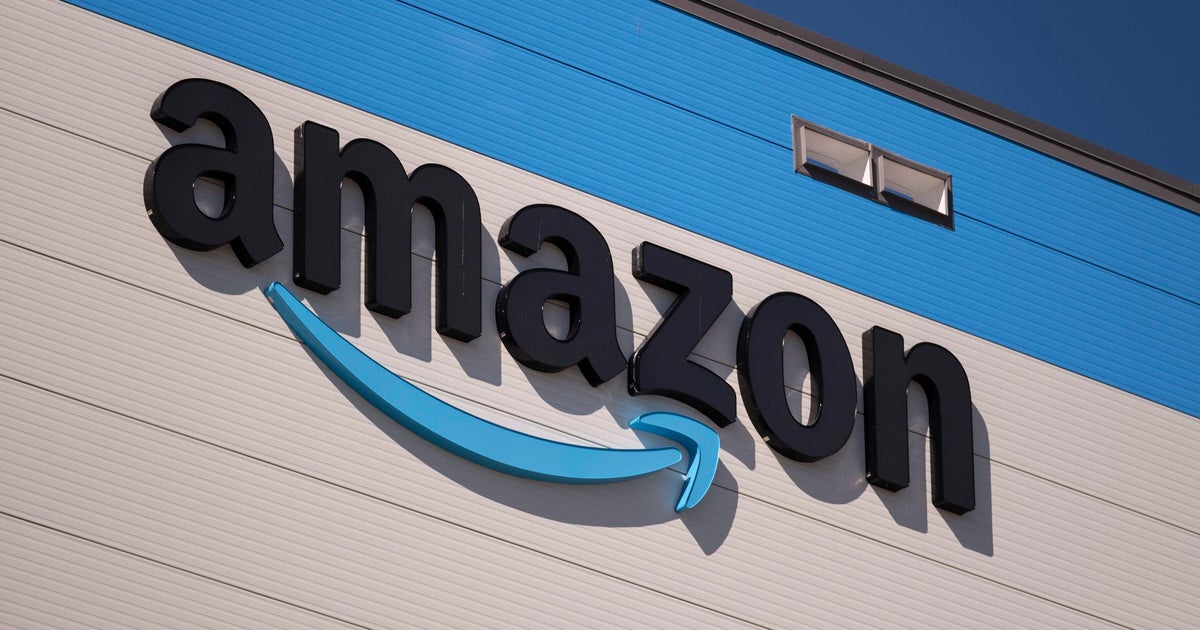CBS News
London Mayor Sadiq Khan says Trump’s attacks on him are due to his ethnicity and religion

London Mayor Sadiq Khan has accused Donald Trump of repeatedly criticizing him because of his “ethnicity” and Muslim faith, comments likely to renew his long-running feud with the US president-elect.
The pair became embroiled in an extraordinary war of words during Trump’s first presidency, initially sparked by Khan speaking out against a U.S. travel ban on people from certain Muslim countries.
Wiktor Szymanowicz / Future Publishing via Getty Images
Trump then accused Khan — the first Muslim mayor of a Western capital when he was first elected in 2016 — of doing a “very bad job on terrorism” and called him a “stone cold loser” and “very dumb.”
The mayor in turn allowed an unflattering blimp of Trump dressed as a baby in a diaper to fly above protests in Parliament Square during his 2018 visit to Britain.
Richard Baker / In Pictures via Getty Images
Speaking on a podcast recorded before Trump’s re-election on November 5 and released earlier this week, Khan, a son of Pakistani immigrants to Britain, said he viewed the past targeting of him as “incredibly personal.”
“If I wasn’t this color skin, if I wasn’t a practicing Muslim, he wouldn’t have come for me,” he told the High Performance podcast, which interviews prominent people in different sectors.
“He’s come for me because of, let’s be frank, my ethnicity and my religion.”
Khan added that during this period he was “speaking out against somebody whose policies were sexist, homophobic, Islamophobic, racist” and that he has “a responsibility to speak out.”
His latest comments on Trump are in stark contrast to those of his colleagues in Britain’s Labour party, which swept to power in July.
Several Labour members of Parliament now in senior government posts, including Foreign Secretary David Lammy, were critical of Trump while they were in opposition during his first White House term.
In 2018, Lammy labeled him a “woman-hating, neo-Nazi sympathizing sociopath.” But Britain’s now-top diplomat last week dismissed the remarks as “old news.”
Meanwhile, Prime Minister Keir Starmer has appeared at pains to forge a positive relationship with the president-elect, promptly congratulating him on his “historic election victory.”
Starmer said their phone call was “very positive, very constructive” and the so-called special relationship between the U.K. and U.S. would “prosper” in Trump’s second term.
CBS News
Teamsters going on strike against Amazon at several locations nationwide

The International Brotherhood of Teamsters says workers at seven Amazon facilities will begin a strike Thursday morning in an effort by the union to pressure the e-commerce giant for a labor agreement during a key shopping period.
The Teamsters say the workers, who authorized walkouts in the past few days, are joining the picket line after Amazon ignored a Dec. 15 deadline the union set for contract negotiations. Amazon says it doesn’t expect any impact on its operations during what the union calls the largest strike against the company in U.S. history.
The Teamsters say they represent nearly 10,000 workers at 10 Amazon facilities, a small portion of the 1.5 million people Amazon employs in its warehouses and corporate offices.
Amazon is ranked No. 2 on the Fortune 500 list of the nation’s largest companies.
At a warehouse in the New York City borough of Staten Island, thousands of workers who voted for the Amazon Labor Union in 2022 and have since affiliated with the Teamsters. At the other facilities, employees – including many delivery drivers – have unionized with them by demonstrating majority support but without holding government-administered elections.
The strikes happening Thursday are taking place at an Amazon warehouse in San Francisco and six delivery stations in southern California, New York City, Atlanta and the Chicago suburb of Skokie, Illinois, according to the union’s announcement. Amazon workers at the other facilities are “prepared to join” them, the union said.
“Amazon is pushing its workers closer to the picket line by failing to show them the respect they have earned,” Teamsters General President Sean M. O’Brien said in a statement.
“If your package is delayed during the holidays, you can blame Amazon’s insatiable greed. We gave Amazon a clear deadline to come to the table and do right by our members. They ignored it,” he said.
The Seattle-based online retailer has been seeking to re-do the election that led to the union victory at the warehouse on Staten Island, which the Teamsters now represent. In the process, the company has filed a lawsuit challenging the constitutionality of the National Labor Relations Board.
Meanwhile, Amazon says the delivery drivers, which the Teamsters have organized for more than a year, aren’t its employees. Under its business model, the drivers work for third-party businesses, called Delivery Service Partners, who drop off millions of packages to customers everyday.
“For more than a year now, the Teamsters have continued to intentionally mislead the public – claiming that they represent ‘thousands of Amazon employees and drivers’. They don’t, and this is another attempt to push a false narrative,” Amazon spokesperson Kelly Nantel said in a statement. “The truth is that the Teamsters have actively threatened, intimidated, and attempted to coerce Amazon employees and third-party drivers to join them, which is illegal and is the subject of multiple pending unfair labor practice charges against the union.“
The Teamsters have argued Amazon essentially controls everything the drivers do and should be classified as an employer.
Some U.S. labor regulators have sided with the union in filings made before the NLRB. In September, Amazon boosted pay for the drivers amid the growing pressure.
CBS News
Teamsters set to strike against Amazon at New York City warehouse

NEW YORK — The Teamsters union is launching a strike against Amazon at numerous locations across the country, including in Maspeth, Queens.
The Teamsters are calling it the largest strike against Amazon in United States history, and it’s set to begin at 6 a.m. Thursday. In addition to New York City, workers will be joining picket lines in Atlanta, Southern California, San Francisco and Illinois.
In a video announcement released Wednesday night, workers voiced their frustrations.
“Us being strike ready means we’re fed up, and Amazon is clearly ignoring us and we want to be heard,” one worker says in the video.
“It’s really exciting. We’re taking steps for ourselves to win better conditions, better benefits, better wages,” another worker in the video says.
The union says it represents about 10,000 Amazon employees and that Amazon ignored a deadline to come to the table and negotiate. The $2 trillion company doesn’t pay employees enough to make ends meet, the union asserts.
At the height of the holiday season, many are wondering what this means for packages currently in transit.
Teamsters President Sean O’Brien said, “If your package is delayed during the holidays, you can blame Amazon’s insatiable greed.”
Amazon says Teamsters are misleading the public
An Amazon spokesperson says the Teamsters are misleading the public and do not represent any Amazon employees, despite any claims.
“The truth is that the Teamsters have actively threatened, intimidated, and attempted to coerce Amazon employees and third-party drivers to join them, which is illegal and is the subject of multiple pending unfair labor practice charges against the union,” the spokesperson said in a statement.
An Amazon representative says the company doesn’t expect operations to be impacted.
CBS News
12/18: CBS Evening News – CBS News

Watch CBS News
Be the first to know
Get browser notifications for breaking news, live events, and exclusive reporting.










